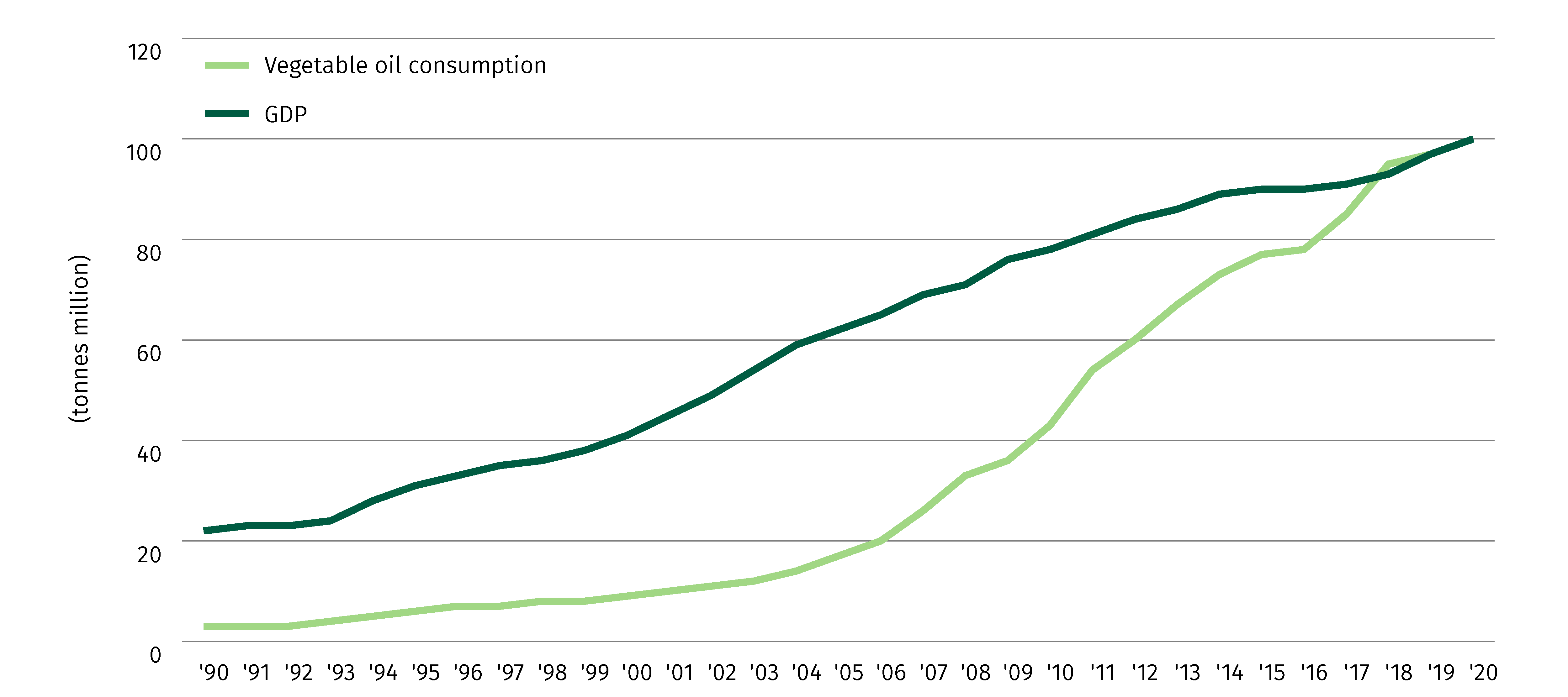Market

Palm oil is used mainly as a cooking oil but also in a wide range of consumer goods and processed foods including biscuits, cakes, soap, cosmetics, lubricants, and in the production of bio-diesel.
Palm oil is one of four major vegetable oils consumed globally. 40% of global vegetable oil production is from palm oil; the next largest is soybean oil; the others are rapeseed oil (also known as canola) and sunflower seed oil. Between them, these oils account for more than 80% of all vegetable oil consumed.
In addition to being the cheapest oil to produce, palm oil is the most traded vegetable oil. It is also very efficient: one well managed hectare at its peak produces upwards of 5 tonnes of palm oil, compared with only 0.5 tonnes of soybean oil.
Growth of world vegetable-oil production

Source: Oil World data 2024
The demand for vegetable oil has been growing, more than doubling in the last 20 years. Consumption of vegetable oils increases with average income, and these have grown strongly in developing countries in Asia, where most palm oil is produced. Increasing urbanisation is another influence leading to higher demand for vegetable oils. Subsistence agriculture is possible in rural areas, but an increase in urban populations means more consumption of processed foods, which are processed using vegetable oils.
Country wealth vs vegetable-oil consumption, 2023

Source: IBRD (World Development Indicators) and Oil World
China average income vs vegetable-oil consumption
(Index: 2020 = 100)

Source: IBRD (World Development Indicators) and Oil World
Palm oil has been taking a larger share of a growing world market for vegetable oil, with Indonesia and Malaysia accounting for the dominant share of palm-oil production. Between them, India, China, Indonesia and Malaysia consume 50% of the world’s palm oil.
Global palm-oil production by country, 2024
(tonnes million)

Source: Oil World data 2024

Sustainability
The Group is a responsible producer with sustainability embedded throughout its operations. Details are provided in standalone ESG reporting and via this website.
Why invest in M.P. Evans?
Crop and production have continued to increase for many years, and forms the basis for the Group’s progressive approach to dividends.
